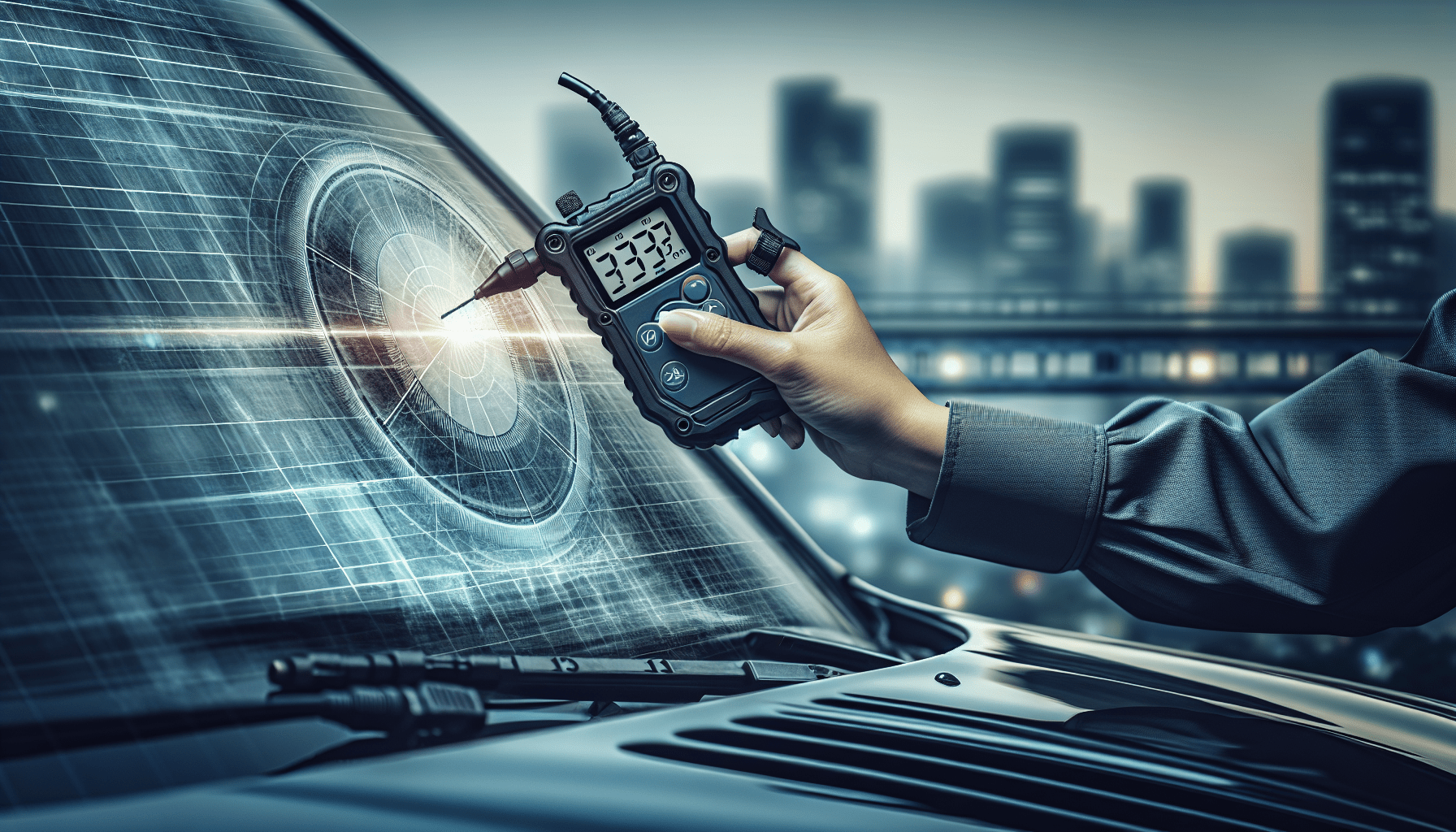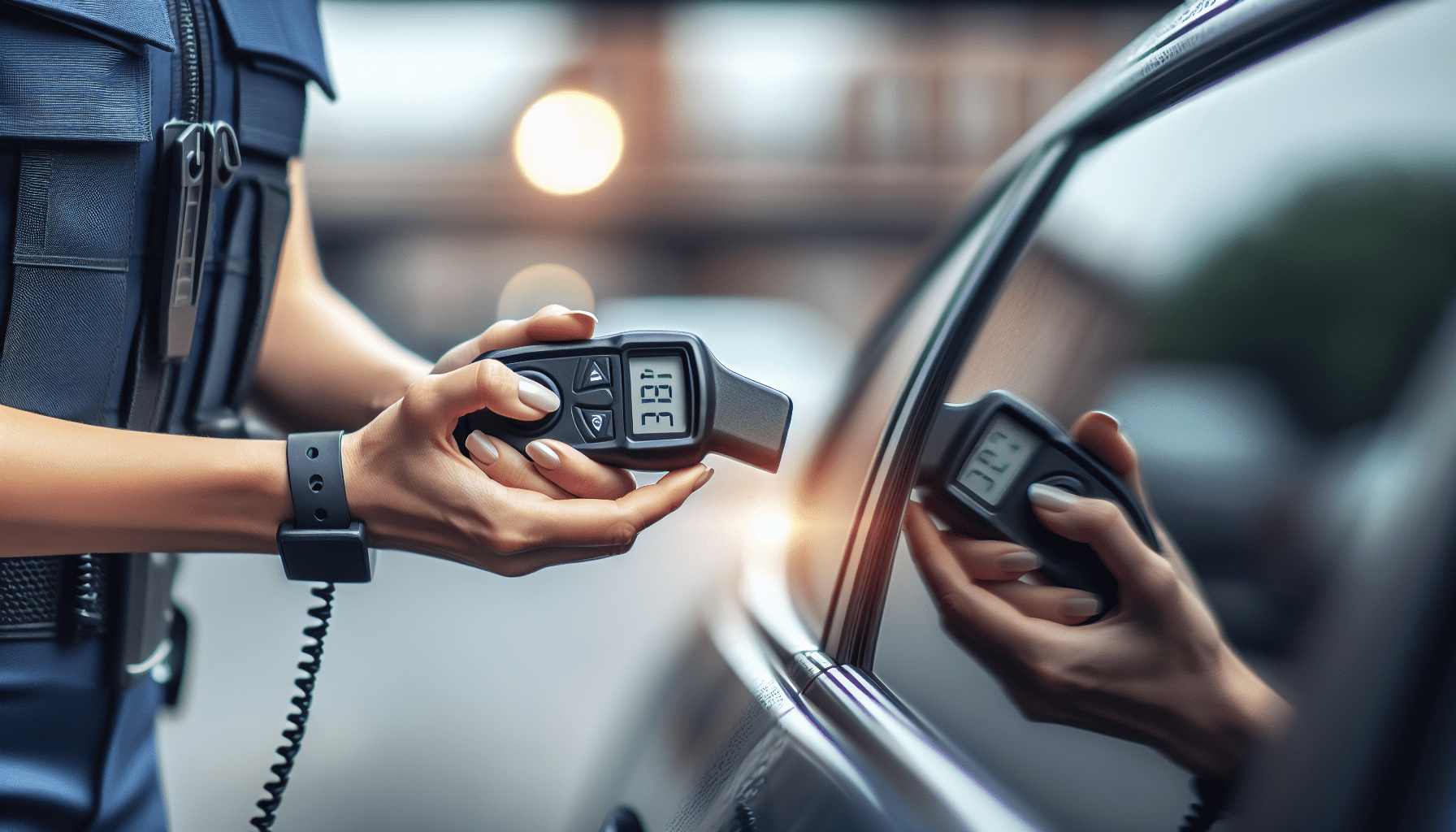
How Do Cops Check Window Tint?
Share
Ever wonder if your window tint is too dark when a cop pulls up? Discover how police check tint and why it matters, ensuring your ride stays stylish yet legal.
What happens when you see a police car and wonder if your car's windows are tinted too much? It's a common question. Let's learn how police officers check window tint and why it matters.

Window Tint Basics
Before we dive into how police officers check window tint, let's understand what window tint is. Window tint is a thin film applied to the inside of car windows. It can make your car look cool by reducing the bright sunlight and keeping the inside cool. But, it can also be a safety concern because dark tints can make it hard to see inside a car.
Why People Use Window Tint
Many people like to use window tint for different reasons. It can help keep your car cool during hot sunny days, protect the interior from fading, and offer a little privacy. Some even think it gives their car a stylish look. Window tint can also block the sun's harmful rays to protect your skin.
Legal Tint Limits
Each state in the United States has rules about how dark your window tint can be. These rules are important because they help ensure everyone can see clearly while driving. If the tint is too dark, it can be hard for you and other drivers to see, especially at night. The rules usually cover how dark and reflective the tint can be on different windows of your car. Following these rules helps keep you and everyone on the road safe.
How Cops Check Window Tint
Now, let's talk about how police officers check if your window tint is within legal limits. Understanding this process will help you make sure your car follows the rules. Here are some common methods they use:
Using a Tint Meter
Cops often use a tool called a tint meter. It measures how much light can pass through your windows. The meter is like a small clamp that goes over the edge of the window. It shows a reading, usually a percentage, to tell how much light gets through. If the reading is too low, it means the tint is too dark and might not be legal.
Visual Inspection
Sometimes, officers might rely on their eyes for an initial check. They are trained to notice when tint looks too dark. If your car windows seem suspiciously dark, they might check them with a tint meter to be sure.
Checking Certification Stickers
In many states, legal tint should come with a sticker or certificate that proves it meets the rules. During a traffic stop, a police officer might ask to see this sticker to check if your tint is legal. Keeping this certification handy is a good idea if your state requires it.
What Happens If Tint Is Too Dark?
Let's say a police officer checks your window tint and finds it's too dark. What happens next?
Getting a Citation
If your window tint is darker than allowed, an officer might give you a ticket, called a citation. This ticket may require you to pay a fine. Sometimes, the officer might give you a warning first, which means you won't get a ticket, but you should fix the tint soon.
Fixing the Tint
After receiving a ticket or warning, you'll need to fix the tint to make it legal. This usually means removing the dark tint and replacing it with a lighter one. Once fixed, you might need to show proof to the authorities to avoid more fines.
Choosing the Right Window Tint
Picking window tint that follows the rules can save you from getting in trouble. Here are some tips to make sure you choose the right tint:
Check State Laws
Always look up your state's laws about window tint before getting it applied. Remember, each state has different rules, and it's important to know them. This helps ensure you pick a tint that's legal for your car.
Use Reliable Products
Choose good-quality window tint from trusted providers. Hallmark Window Films, for example, offers a range of window films that are not only stylish but also compliant with state laws. Their products cover everything from solar control to privacy films, helping keep your car looking great while following the rules.
Ask a Professional
When deciding on window tint, asking a professional can help. They can guide you in picking the right shade and type of tint for your needs while staying within legal limits. A professional installer also makes sure the tint is applied correctly, which can save you trouble later.

Benefits of Legal Tint
Staying within legal limits offers many benefits. Besides avoiding trouble with the law, legal tint keeps you safe and comfortable on the road.
Improved Visibility
By following tint regulations, you keep clear visibility, which is essential for safe driving. Legal tint allows enough light to pass through your windows, helping you and other drivers see the road better.
Protecting Your Car
Using window tint protects your car's interior. It helps keep the sun's harsh rays from damaging your car's seats and dashboard. Over time, this can save you money on repairs or replacements.
Health Benefits
Legal window tint can protect your skin by blocking harmful UV rays. These rays are present even on cloudy days and can potentially harm your skin over time. Keeping your tint within legal limits ensures you stay healthy while driving.
Conclusion
Now you know how cops check window tint and why it's important. By understanding these rules and choosing the right products, like those from Hallmark Window Films, you can enjoy the benefits of window tint while staying safe and legal on the road. So next time you see a police car, you can feel confident that your car is following the rules. Remember, keeping your tint within legal limits helps make driving safer for everyone.


